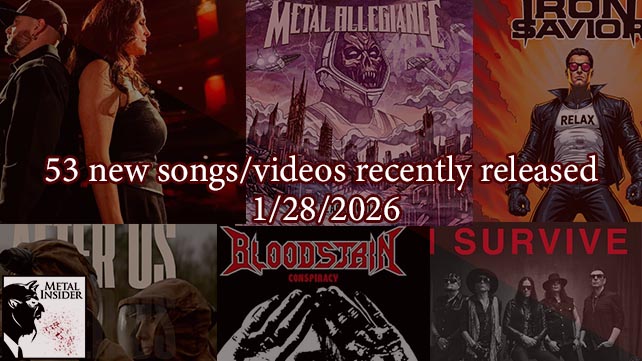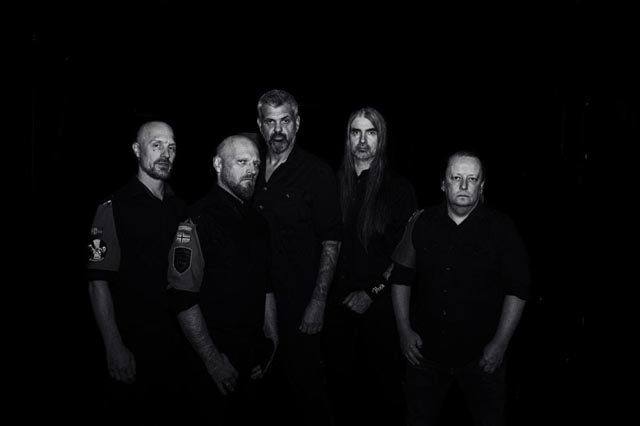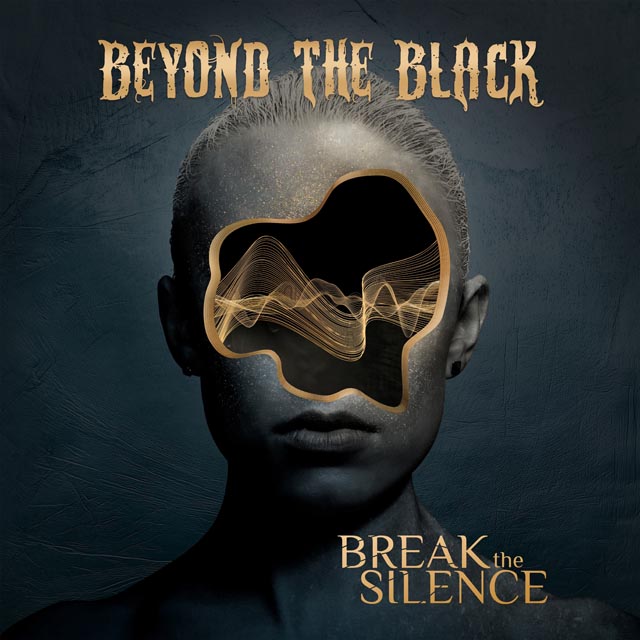
It’s been less than one month since Suicide Silence released their self-titled album to the lowest sales in the history of their career. Just the other day we heard Eddie Hermida’s response to these slow album sales and never-ending backlash. Aside from what we think about Linkin Park’s new “Heavy” tune winning the disappointment award, fans seem to be placing Suicide Silence’s album in the disastrous St. Anger category.
Live Metal recently interviewed Hermida to discuss the aforementioned backlash. Hermida’s response surprised us with his artistic viewpoint rather than a business deal. Meanwhile, Live Metal wasn’t shocked about Suicide Silence’s new direction, since they interviewed Hermida two years prior admitting they were “looking to burn bridges.”
Live Metal reminded Hermida about the previous interview and he explained:
“Well, I think they still have their swimming buddies on and they’re trying to float, but they’re not letting the music soak in from what I see. They’re trying their hardest to make other people feel the way they feel, which is not really doing a whole lot, to be real to you. It’s not breaking the band. We still are who we are. The fans that are open-minded are allowing the music to soak in, and the fans that are afraid of music are not giving it a chance yet. They will when they see it live. They will when they come to the show and realize the music is still heavy, it’s very cohesive, it fits well with the older music. That’s kind of the biggest thing.”
Hermida later admitted he expected to receive backlash:
“We made a record for ourselves and not for our fans, so it’s going to create turmoil. If I set out to change people’s opinions, then why would I be surprised when their opinions change? I knew 100 percent that even if I threw one clean vocal on the record that we would receive a backlash. Not only did I not throw just one clean vocal in, I threw in vocals that were completely off-putting—vocals that are meant to create discomfort in people because they’re uncomfortable vocal stylings. It’s not from a point of trying to sell records, it’s from a point of angst and just complete hysteria, depravity and despair that these vocals are coming from. So it’s not even a focus of clean vocals.
I’m not doing things to sell records, I’m doing things to create music and an art form. If I was worried about selling records, then I wouldn’t have created this record. I would’ve autotuned my vocals, and I would have created something that is more pleasant of an experience. I would have created more of a safety net for all of these fans to fall into. The point is that I didn’t want to create something comfortable. I wanted to create something punk rock. I wanted to create something heavy metal.”
On the difficulty level for Hermida adding clean vocals on the album:
“I’ve been singing my whole life. I was in musicals as a kid into my teenage years. Every band that I’ve been in except All Shall Perish and Suicide Silence were singing and screaming bands. Even on All Shall Perish, I sang on a majority of our records. I wouldn’t call it as much singing as I did on this one, but really the only record that I’ve done without any clean vocals in it is You Can’t Stop Me. So for me, it’s kind of like it was more than obvious that this kind of change was coming.
When I was doing this record, the one thing I steered clear from was safety and comfort. I wanted the vocals to sound really raw, to sound crazy and despairing. It’s complete unabashed vulnerability in the vocals, and that was something that was really hard to deal with. Getting to that point was easy for me because I’m a very passionate person. Cutting down to who I am is what Ross did. He was able to draw out some really painful memories out of me and was able to get down to the nerve of who I am. And once I was there, it was easy for me to do these vocals. But getting back to normal and feeling OK again was the hardest part, because I was so vulnerable and so cut open that the wounds took time to heal. It was really hard not trying to be completely changed after sessions with Ross. I think that that was the hardest part, not the singing, but just the emotional state I was in that really made things difficult.”
The interview also discussed how therapeutic music can be, opening up Hermida’s old wounds even further. Towards the end, Live Metal changed the subject bringing up the feud between Suicide Silence and Thy Art is Murder asking, “Will you be more careful in the future when naming or singling out other bands in the press?”
Hermida replied:
“Am I being more careful now? No, fuck no. Thy Art is Murder absolutely saw an opportunity and ran with it, and honestly, they did the silliest thing you could ever do in mimicking somebody like Trump and say that they are not selling out. They are literally going, ‘Hey, we’re not sell-outs, but please buy this hat. You need to buy this hat.’ It’s completely backwards thinking. They’re looking for their fans to feed into the chaos. They’re looking for the attention, and that’s fine. It goes exactly with what I said—we don’t need that kind of attention anymore. I praise them for jumping on an opportunity just like they should. When you’re desperate for making money, you’re going to serve the fans, you’re going to create the same music so that they can feel safe in their sound, and you’re going to try your hardest to maintain in that world. I know from experience. I know from being in a band that was desperate to serve the fans, creating music that served us and the fans at the same time. All Shall Perish was a band that did that 100 percent. Especially with members leaving and all that, we always worried about what other bands were doing and how to be better than that. In that process, you forget who you are.
It’s really funny that it’s become such a thing, but the reality is that I didn’t say anything that was that hurtful towards that band. They saw an opportunity, and they ran with it. If anything, they’re hurting themselves by continuing that mentality and continuing that really tongue-in-cheek way of doing things. It’s not showing anybody any kind of strength. It’s not showing any kind of value. It’s just going, ‘Oh, I see this opportunity where my band’s name is in the media. Let’s sell some stuff.”
Check out the full interview here.









